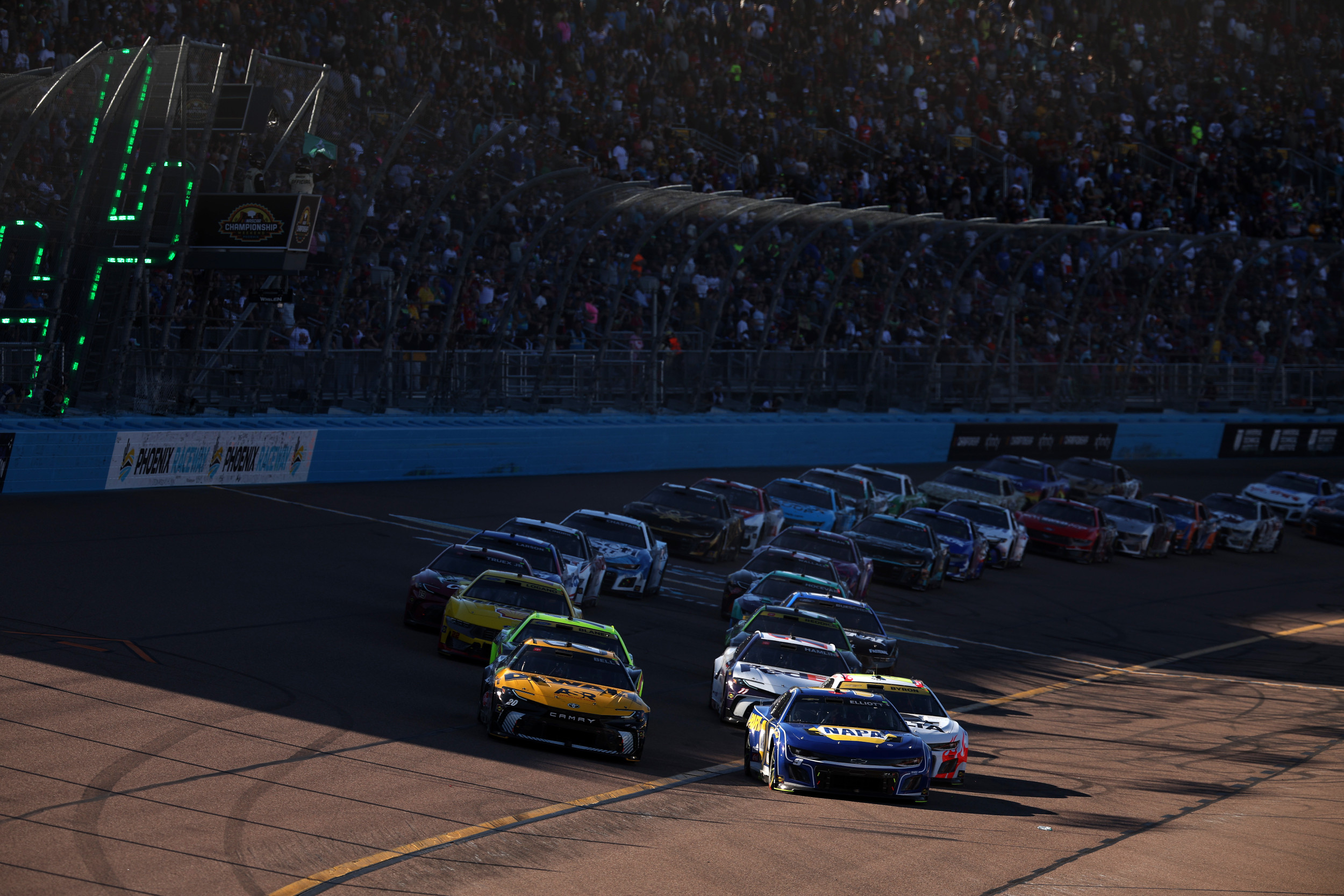Donald Trump was convicted in May of 34 felony counts relating to hush money payments made to adult film actress Stormy Daniels, to prevent public allegations of an affair.
Originally set for Nov. 26, 2024, Trump's sentencing was indefinitely postponed by Judge Juan Merchan following his reelection to the Presidency at the start of the month, due to concerns of prosecuting a sitting president. Manhattan District Attorney Alvin Bragg indicated sentencing might not occur until Trump's term ends in 2029, drawing criticism from some legal experts who argue the delay undermines justice.
Trump's legal team is set to file a motion to dismiss by Dec. 2, 2024, with prosecutors responding by December 9. The decision on this motion will determine the case's future and its implications for Trump's presidency. Trump denied the charges and said the case was politically motivated.
Ahead of the motion, Newsweek has reached out to legal experts for their analysis of the potential outcomes and broader implications.

Barbara L. McQuade, Professor, Criminal law, University of Michigan
I do not know what Judge Merchan will do, but I think the appropriate decision would be to deny the motion to dismiss the case and vacate the jury's verdict. The conduct at issue occurred before Donald Trump took office, so it is not protected by presidential immunity as articulated by the Supreme Court following the verdict in this case.
At trial, prosecution evidence included a conversation between Trump and a staffer that occurred while Trump was in office, but it did not pertain to core constitutional duties of a president, so it would seem that any presumption of immunity for that evidence was overcome by other evidence in the case that this conversation was outside the scope of a president's official duties. Therefore, the jury's verdict of guilty in 34 counts should be upheld.
Even if the court finds that the evidence was protected by presidential immunity, the proper remedy would be a new trial, rather than outright dismissal. The protection a president receives from prosecution while in office is only temporary. The prosecution, not the court, has the authority to decide whether to proceed with the charges in 2029.
One question is whether Judge Merchan should impose sentence before Trump takes office. He could assess a fine, which would not interfere with Trump's ability to serve as president. A fine would send an important message that no one is above the law. Trump would no doubt appeal, and the appeal would have to pause on Jan. 21, 2025, until Trump leaves office.
Stuart Green, Distinguished Professor of Law, Rutgers Law School
It has often been said since the initiation of the Trump hush money case that we are sailing in uncharted waters. I believe Judge Merchan was right to postpone sentencing indefinitely now that Trump has been reelected: It's just not reasonable to think that a president of the United States could execute his duties as commander in chief while serving time in a New York state prison, or even while doing community service.
But the rationale for dismissing the case entirely, rather than simply delaying sentencing till after Trump's term ends, is much less clear. Trump's lawyers will likely argue that such dismissal is appropriate as a "matter of justice." They'll say he shouldn't be faced with the prospect of prison time "hanging over his head" for the next four years. Prosecutors will argue in response that no man, including the president, is above the law, and that even delayed justice is preferable to no justice.
Judge Merchan seems like a no-nonsense judge who has stood up well under unrelenting pressure. My best guess is that he will decide to stay the case rather than dismiss it entirely. To be sure, four years is a long time. Anything could happen between now and then, including that the case is dismissed by a higher court. I just don't see Merchan as the one doing the dismissing.
Ronald J. Allen, John Henry Wigmore Professor of Law, Northwestern University
If Judge Merchan had been rational, he would have dismissed the case for a whole host of reasons. I believe the specific facts of this case against Trump are indeed novel. Manhattan District Attorney Alvin Bragg campaigned to hold powerful individuals accountable, including Trump, which I believe is politically motivated.
In essence, I think the prosecution is unseemly and the convictions are likely to be reversed on appeal in any event. Thus, a rational human being would cut his losses and bring this to an end. I think it is not at all obvious that Merchan is rational. He demonstrated remarkable animus to Trump throughout the trial, almost as though he were part of the organized effort to "get" Trump. If that is true, I suspect he won't give up now.
Asha Rangappa, Assistant Dean, Senior Lecturer, Yale Jackson School of Global Affairs
I don't believe Judge Merchan will dismiss the case—the question turns on two legal questions. One is whether any of the evidence presented at trial—such as Trump's conversations with his then-White House adviser—could be considered an "official act," and therefore impermissible to be introduced as evidence. The second question is whether even if they were, it was a "harmless error" that would not have affected the jury's decision.
I think given the volume of evidence presented, and the high bar for overturning a jury conviction, that Merchan would likely deem the few pieces of evidence that could be considered official acts as harmless error. Trump could of course appeal that, and ultimately, the Supreme Court could end up weighing in on whether any of the evidence constituted official acts.
Of course the fact that Trump is now the president-elect could make a difference—though again, since these are really about questions of law, his political status shouldn't be a factor.
Norman Eisen (ret.), Ambassador, Senior Fellow in Governance Studies at the Brookings Institution
The fact that Judge Merchan has moved forward with briefing on the president-elect's motion to dismiss signals to me that he—correctly—may not dismiss the case, though of course we will have to wait and see how he rules after briefing concludes on December 9th.
Although what he will end up doing remains to be seen, Merchan should deny Trump's motion to dismiss for two reasons.
First, Trump's argument that he should have immunity in this case under Trump v. US is wrong. As I explained in an X thread that I wrote, Trump's 34 convictions in his Manhattan criminal case stem from private acts—falsifying business records with the intent to interfere with the 2016 election—that are clearly unofficial and thus not subject to immunity. Judge Merchan has the opportunity to create important precedent here.
Second, the fact that Trump was elected president does not mean that he can't be sentenced. DOJ's policy against prosecuting a sitting president does not address a situation in which the president-elect has already been convicted, and even if it did, Judge Merchan is not bound by OLC guidance.
Even if Trump cannot serve out a carceral term while president—which many people convicted of similar crimes have received, as my Just Security report analyzed—he should still be sentenced like any other convicted criminal. That would send a clear message that no one is above the law. Judge Merchan also has the option to sentence Trump to jail but then delay that sentence for four years.
Jessica A. Levinson, Professor, Loyola Law School
Judge Merchan faces an unprecedented situation. If Judge Merchan dismisses the case, I think that would be based on a finding that the acts forming the basis of the conviction are covered by the Supreme Court's recent decision regarding presidential immunity.
But The Supreme Court's decision regarding presidential immunity from criminal prosecution, is based on the idea that presidents have immunity for official acts, not private acts. There is a very good argument that the ax forming the basis of Trump's conviction in the hush money case is a private act.
I don't think judge Merchan is likely to dismiss the case based on the fact that Trump was re-elected to be President of the United States. Trump's election suggests that it could make sense to postpone sentencing until after his term in office is over. But Trump's election alone does not seem to provide grounds to dismiss the case after a jury verdict.




















 English (US) ·
English (US) ·